
UK, European new car registrations rise in September
Registrations of new passenger cars within the European Union were up for the thirteenth month in a row in September. Information published by the ACEA (European Automobile Manufacturers Association) shows a 6.1 per cent year-on-year increase in registrations for the month across the combined EU28 and EFTA regions, and a 5.7 per cent rise for the EU15 and EFTA regions.
Continue ReadingRubber growers need replanting subsidies, says India’s tyre industry body
The organisation representing India’s tyre makers has called upon its national government to encourage rubber replantation and offer rubber growers subsidies to plant new trees. According to news published by the Press Trust of India, the Automotive Tyre Manufacturers’ Association (ATMA) wants these measures implemented in order to address the reluctance of growers to plant new trees, which can’t be tapped for their first six to seven years. Without encouragement, the ATMA fears growers will continue to tap older, lower-yielding trees; the association comments that this practice is profitable for growers due to the high prices natural rubber currently commands.
Continue ReadingOrganisers: Latin Auto Parts Expo a success
Show organisers are hailing the 2014 Latin Auto Parts Expo (held at the ATLAPA Convention Center, Panama, Republic of Panama) was a huge success with NEARLY 200 quality exhibitors and approximately 3,200 qualified visitors from over 60 countries.
Continue ReadingGerman authorities give Michelin green light to acquire Ihle Baden-Baden
The German Federal Cartel Office has decided that no further proceedings are necessary prior to granting approval for Michelin’s planned acquisition of Ihle Holding AG, parent company of tyre wholesaler Ihle Baden-Baden AG. In an official notification, the Cartel Office (Bundeskartellamt) reported that the acquisition is seen as posing no problem.
Continue ReadingSolvay names Nuyttens as president of Solvay Silica
Solvay Group has appointed An Nuyttens as president of its Silica Global Business Unit, succeeding Tom Benner who left the Group.
Continue ReadingMarangoni buys Recamax Reifen GmbH
Marangoni Group has acquired Recamax Reifen, a German distributor of earthmover retreads. The purchase follows the acquisition of Wenzel Industrie in 2009. According to the company, the partnership between Recamax and Marangoni has been going for more than 25 years. It was reinforced with the objective of consolidating and strengthening Marangoni Group’s presence in Germany, one of the most important markets in Europe.
Continue Reading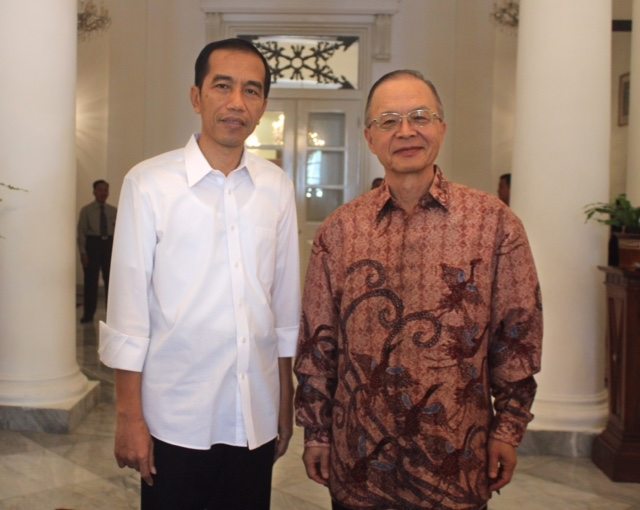
Indonesia’s president-elect supports Maxxis tyre factory plans
Indonesia’s newly elected president promised support for Maxxis’ planned tyre factory in the country in a meeting with company officials in Jakarta at the end of September. Accompanied by members of the company’s Indonesia management team and a representative of Taipei’s Economic and Trade Office in Jakarta, Maxxis president Dr Wally Chen met with president-elect Joko Widodo 29 September.
Continue Reading
Hankook extends luxury SUV tyre supply with US deal
Hankook Tire will supply its Dynapro HT all-season tyre as original equipment for the 2015 Lincoln Navigator, an SUV built primarily for the North American market. The company views supply of the 275/55R20T tyre as further penetration into both the Lincoln brand and the luxury SUV segment as a whole. In addition to this new agreement for the Navigator, Hankook supplies Ford’s premium vehicle division with tyres for the Lincoln MKT full-size touring saloon and MKZ mid-size passenger car.
Continue Reading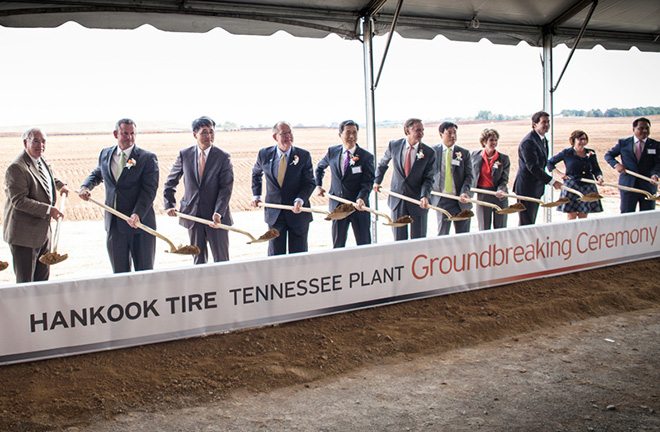
Groundbreaking held for Hankook’s US tyre plant
Construction work has officially begun on Hankook Tire’s new factory in the United States following a groundbreaking ceremony held at the plant site in Clarksville, Tennessee on 9 October. The new facility, which is expected to begin operation in 2016 and will reach a production capacity of 12 million units, is Hankook’s eighth production facility worldwide and first in North America.
Continue Reading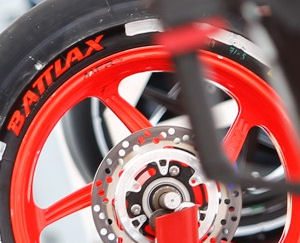
Bridgestone develops new tyre allocation for Australian MotoGP round
A brand new tyre allocation will be introduced for the 2014 Australian Grand Prix, including a newly-developed asymmetric front slick tyre. Bridgestone says the front slick it is making available for this weekend’s event at Philip Island is a soft specification tyre that uses Bridgestone’s soft rubber compound in the left shoulder while an extra-soft rubber compound is used in the lesser-used right shoulder in order to offer superior warm-up potential. The asymmetric front slick is being offered as part of Bridgestone’s standard front tyre allocation, with the other two front tyre options in the allocation being conventional, symmetric slick tyres.
Continue Reading
New president for Alliance Tire Americas
Effective tomorrow, James Clark will take over as president of Alliance Tire Americas. He fills the position left open since May, when Manny Cicero announced he was leaving the company he’d led since 2007. Clark will be based in Alliance Tire Americas’ headquarters in Wakefield, Massachusetts.
Continue Reading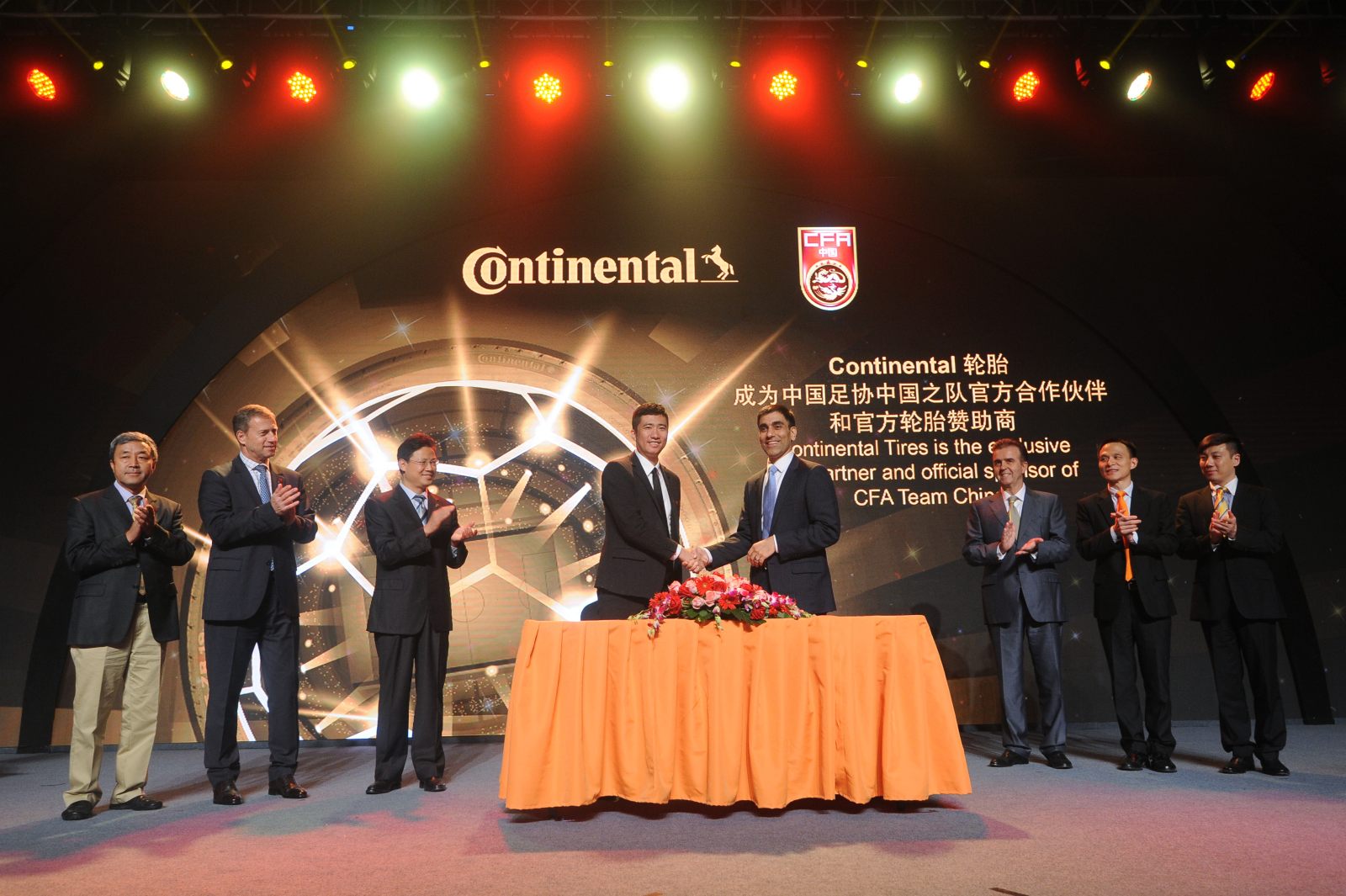
Continental furthers Asian football activities with Chinese sponsorship deal
Football is Continental’s chosen brand promotion method in many parts of the world, and its involvement in the game has been extended by its entry into a four-year collaboration with the Chinese Football Association. This deal with the CFA was announced at the start of Continental’s AFC Asian Cup 2015 Australia Trophy Tour on 26 September. Continental states that this new agreement, along with its AFC Asian Cup 2015 sponsorship, represents a specific focus on the Asia Pacific region.
Continue Reading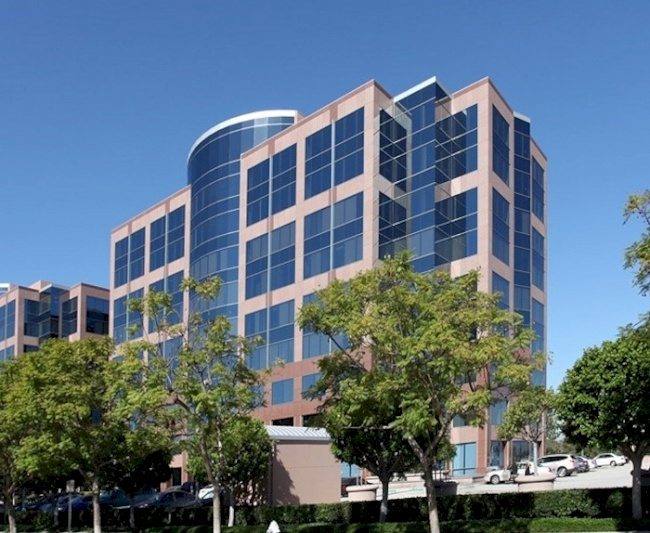
Yokohama Tire relocating US headquarters
Let’s hope that Yokohama Tire Corporation held on to those packing cartons, as it will soon embark on its second growth-prompted move of the year. Yokohama Rubber’s North American sales and marketing operation will move its corporate headquarters from Fullerton, California to nearby Santa Ana to accommodate business growth. The move is expected to take place in November.
Continue ReadingMichelin opens second Tigar Tyres plant, says more entry-level investment possible
The second Tigar Tyres plant in Pirot, Serbia is now open. An official inauguration was held at the facility on 9 October, and this culminated in Serbian President Tomislav Nikolic and Jean-Dominique Senard, CEO of parent company the Michelin Group, signing the first tyre to roll off the production line. The inauguration marked the completion of the first part of two-phase project. Investment has so far reached €215 million, and the 56,000 square metre facility will be capable of producing between 8 million and 12 million tyres in its phase one incarnation. Some 500 people will be employed at the new plant, increasing the Tigar workforce to around 2,600 to 2,700.
Continue ReadingTyre RFID ‘tags’ to be rolled out in the UAE
Here in Europe and in other major markets such as Japan, Korea and the US tyre labelling has been the subject of intense discussion for some time. However, if the local news reports are anything to go by, the UAE appears to be taking the concept to the next level with the introduction of smart RFID “tags” which feature both an RFID chip and visual label including a QR code.
Continue Reading
